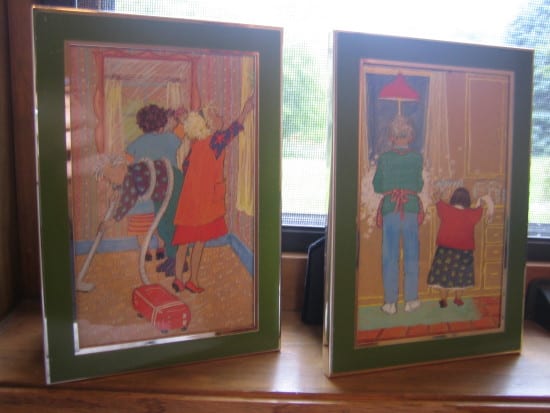our domestic vocations
“Religion never thoroughly penetrates life until it becomes domestic.”
Horace Bushnell, Christian Nurture (1847)
What parent, faced with washing another sinkful of dirty dishes, or cleaning up after another sick child, or folding another seemingly endless load of laundry, doesn’t wonder – is this what I signed up for? Is this how my talents are best spent? Is this what I got that degree for?
I have plenty of days like this.
But I also have the gift of good work that challenges me to think about such questions from a theological standpoint. I’m in the midst of researching what’s been written on “vocation through the lifespan,” namely, how God’s call to us evolves over our lifetime.
Quite often the literature on vocation touches on the vocation to marriage and the vocation to parenting, sometimes romanticizing their merits, sometimes enumerating their challenges. Both of these vocations – to marriage and to parenting – can change dramatically over one’s lifetime, although the evolutions happen gradually, day by day.
What also strikes me about both vocations is that they are largely centered in the home. We certainly remain spouses and parents when we go into the workplace, the school, the church, the community. But we spend much of our time as spouses and parents in the domestic setting.
The home, then, is the primary context for the unfolding, developing, and maturing of vocations to marriage and parenting.
We answer a call when we rouse in the dark night to calm a screaming baby, when we sit down to talk with our spouse at the end of the work day, when we spend time on all the chores required to keep our household running.
Vocation can be deeply domestic.
I’ve come across this quote from Horace Bushnell several times in my research lately. Each time I read it, it gives me pause.
What does it mean for religion to “become domestic”? Does it lose its power and conviction when it comes home? Does it become self-centered when it is less concerned with the needs of world outside? Does it become softer, taken-for-granted, everyday?
Hardly, Bushnell insists. Faith does not become real, raw, relevant until it finds a way into our homes and hearts.
The domesticity of faith is not something to be dismissed. The religious challenges and crises we face in our marriages and families are some of the most real and penetrating questions of faith we will ever encounter. Why did God let my loved one get sick? How can I help my child with her addiction? Can this marriage be saved?
I believe our churches, in turn, need to help couples and families to see the home as the place where we learn to care not only for our own, but for all of God’s people. As the domestic church, the family must be the school where we learn about the needs of the world and ask how God is calling us to respond.
The domesticity of religion, therefore, is not mere navel-gazing. As we encounter love and life in its gritty, day-to-day, up-and-down realities, we learn what it means to be in relationship with others, to forgive and to grow, to recognize Christ in one another.
Religion becoming domestic is a good thing, when it sends us forth with faith into the world in turn.


Amen, mother sister! “As we encounter love and life in its gritty, day-to-day, up-and-down realities, we learn what it means to be in relationship with others, to forgive and to grow, to recognize Christ in one another.”
My hubby’s going through RCIA this year–I’m going to point him to this post, because I think you’ve captured what authentic religiosity is really about.